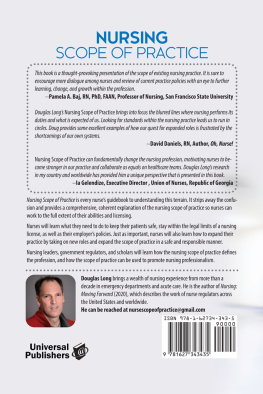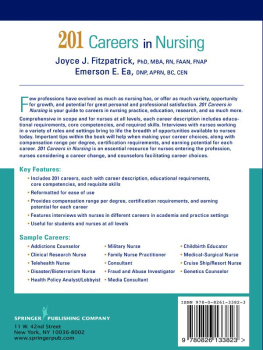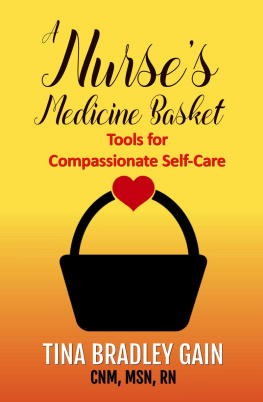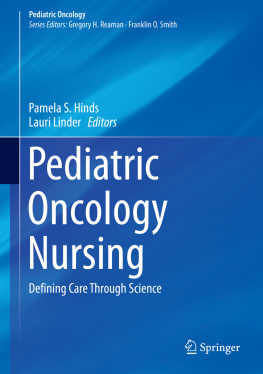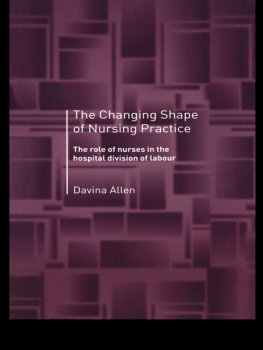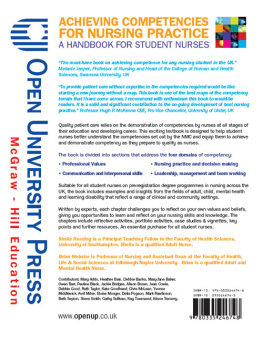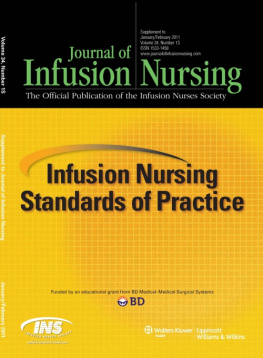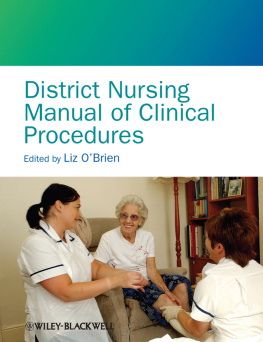Front Matter
Guide

Nursing Scope of Practice
Nursing Scope of Practice
Douglas Long, RN, MBA, PhD

Universal-Publishers
Irvine Boca Raton
Nursing Scope of Practice
Copyright 2021 Douglas Long. All rights reserved. No part of this publication may be reproduced, distributed, or transmitted in any form or by any means, including photocopying, recording, or other electronic or mechanical methods, without the prior written permission of the publisher, except in the case of brief quotations embodied in critical reviews and certain other noncommercial uses permitted by copyright law.
For permission to photocopy or use material electronically from this work, please access www.copyright.com or contact the Copyright Clearance Center, Inc. (CCC) at 978-750-8400. CCC is a not-for-profit organization that provides licenses and registration for a variety of users. For organizations that have been granted a photocopy license by the CCC, a separate system of payments has been arranged.
Universal Publishers, Inc.
Irvine Boca Raton
USA 2021
www.Universal-Publishers.com
ISBN: 978-1-62734-334-5 (pbk.)
ISBN: 978-1-62734-344-2 (ebk.)
Typeset by Medlar Publishing Solutions Pvt Ltd, India
Cover design by Ivan Popov
Library of Congress Cataloging-in-Publication Data
Names: Long, Douglas, 1965- author.
Title: Nursing scope of practice / Douglas Long, RN, MBA, PhD.
Description: Irvine : Universal Publishers, 2021. | Includes bibliographical references and index.
Identifiers: LCCN 2021019395 (print) | LCCN 2021019396 (ebook) | ISBN 9781627343435 (paperback) | ISBN 9781627343442 (ebook)
Subjects: LCSH: Nursing--Practice. | Nursing--Standards. | Nursing--Political aspects.
Classification: LCC RT86.7 .L66 2021 (print) | LCC RT86.7 (ebook) | DDC 610.73--dc23
LC record available at https://lccn.loc.gov/2021019395
LC ebook record available at https://lccn.loc.gov/2021019396
Table of Contents
Preface
The nursing profession is growing, professionalizing, and taking on more responsibility with every passing year. As I argued in my previous book Nursing: Moving Forward, though, there are some major disconnects that are not being addressed. My point was that nurses are overworked and taking on more responsibility without the authority to make their new role doable. The end result is burnout, bullying, and dishonesty.
Nurses are taking on almost limitless responsibility. Even if a problem arises that is beyond the realm of nursing and outside of our scope, we are still expected somehow to do something to address the matter. For example, even if a problem is the physicians responsibility to address, the nurse can be blamed for not recognizing that and contacting him fast enough.
Our scope of practice is a major part of this story. By stating all that a nurse is allowed to do, the scope of practice is essentially a statement of what nursing is . Do something outside of that scope, and you can jeopardize the patients safety, lose your license, or worse.
It would seem that something so important would have an entire library of publications. Not so. There are books from professional associations, particularly the American Nurses Association (ANA), that include their official statements of what, in their view, constitutes the nursing scope of practice. lists not a single book published that takes an independent view on scope of practice, critiquing the nursing boards and professional associations and their take on the issue.
So, I set out to fill that gap. I began with a literature review, reading everything I could find related to scope of practicemostly in nursing, but also in other healthcare professions. I interviewed nurses and other subject matter experts about their experiences and opinions. Part of my objective has been to put a human face to the scope of practice, to show how individuals are affected and how, in turn, they react and perhaps seek change.
In the course of my work, I synthesized the information I had gleaned, aiming to provide a clear and simple explanation of the nurse scope of practice, why it matters, and the major issues that arise in carrying out our work as nurses. I even developed some recommendations for where we can take our nursing profession moving forward.
My research, and this book that summarizes its findings, is an attempt to look at the nurse scope of practice from different angles, independently , see how the issues, problems, and opportunities come together, show a need for clearer regulations, and discuss expanding the scope so nurses can work at the full extent of their abilities. My unabashed conclusion after studying the issue is that nurses are capable of working at a higher level, our patients would benefit from our doing so, and forces opposing this expansion are holding us back. To make the case for an expanded scope, we need to begin from a thorough understanding.
I am not a full-time nurse scholar or researcher. I work as a direct patient care nurse, and have studied the issue of scope of practice as I work, in real time. I also studied it as part of my doctoral research at the University of California, San Francisco (UCSF), and as part of the work that went into writing my last book. The first draft of Nursing: Moving Forward , had an entire chapter on scope of practice that ended up being used here instead. Ive also studied nursing regulators extensively, on my ownincluding through visits to nursing boards in half the U.S states and about 40 other countries.
In short, I bring to the table the perspective of a nurse working on the front lines of patient care, along with about 14 years of actively thinking about and studying our scope of practice. Working in direct patient care keeps me continually thinking about how these academic concepts look when you have a living, breathing patient in front of you. I self-fund my research, which gives me the freedom to critique publications, ideas, and even people, concerned only with the quality of my scholarship. This manuscript was not peer reviewed, but was offered to subject matter expertsincluding every U.S. state nursing board and every state chapter of the American Nurses Association, authors of publications I cited, and major nursing associations/organizations. Some revisions were made according to their feedback.
Backdrop to Writing
I began drafting this book once Nursing: Moving Forward was published in January 2020. As the Covid-19 pandemic progressed, travel and in-person meetings came to a halt, but my regular work as a nurse changed dramatically and took on a new urgency. Then, on June 17, 2020, I began to feel body aches. I had a slight cough, but no shortness of breath and no fever. It took my healthcare providers a few days to get me swabbed, and another day to get the results.
I still remember the missed phone call and the message that said, Please call us immediately. The person who had called turned out to be an ophthalmologist sidelined in the pandemic from her regular duties. Her job was now to inform people of their positive test results. I had Covid-19. It came as no surprise. At work, I was surrounded by coronavirus-positive patients. There was no way I was not going to catch it, eventually. Now I had crossed that line.
It was not clear how serious it might be to my health. I live with my 85-year-old mother, who counts on me for her daily caregiving, and it was too late for me to isolate myself for her. She was already exposed and, given her age, contracting Covid-19 would probably be a death sentence.

